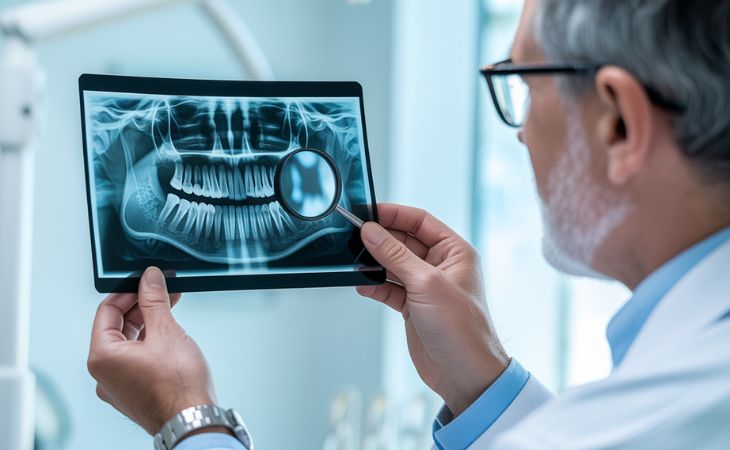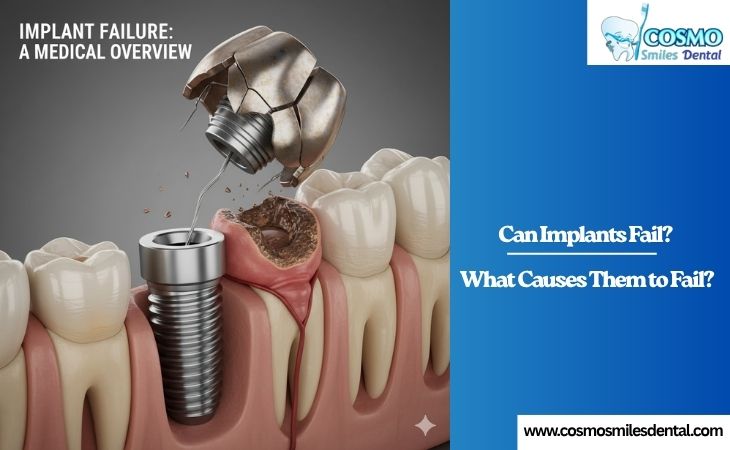Dental implants are one of the most reliable and long-lasting tooth replacement options available today. They look natural, function like real teeth, and help preserve jawbone health. However, despite their high success rate, dental implants can fail in some cases — and understanding why can help you prevent it.
If you’re considering dental implants in Arlington, knowing the potential causes of implant failure can make your treatment journey smoother and more successful.
Understanding Dental Implant Failure
A dental implant is designed to fuse with your jawbone through a process called osseointegration. When this bond doesn’t form properly or breaks down later, the implant can loosen or fail. While the success rate for dental implants Arlington patients is typically over 95%, a small percentage may experience complications that affect implant stability or longevity.
Common Causes of Dental Implant Failure
1. Poor Oral Hygiene
Neglecting daily brushing and flossing can lead to peri-implantitis, a gum infection similar to periodontal disease. This condition damages the bone and tissue supporting the implant, often leading to failure over time. Consistent cleaning and professional checkups can prevent it.
2. Insufficient Bone Support
Healthy jawbone density is essential for holding an implant securely. If there isn’t enough bone, the implant may not integrate properly. Many Arlington dental implant specialists recommend bone grafting before surgery to ensure long-term success.
3. Smoking and Tobacco Use
Smoking restricts blood flow and slows healing, which increases the risk of implant rejection. Research shows that smokers face nearly twice the risk of implant complications compared to non-smokers.
4. Medical Conditions
Uncontrolled diabetes, autoimmune disorders, or osteoporosis can interfere with healing and bone strength. Patients should discuss their medical history with their dental implant dentist in Arlington before surgery.
5. Poor Surgical Technique or Placement
Implant failure can also occur when placement isn’t optimal — if the implant is too close to a nerve, sinus cavity, or other tooth roots. That’s why it’s vital to choose an experienced dentist who uses modern imaging and 3D planning.
6. Teeth Grinding (Bruxism)
Excessive grinding places pressure on the implant and surrounding structures. Using a night guard or getting a bite adjustment can protect your implants from unnecessary stress.
Early Signs of Implant Failure
Recognizing early symptoms can make a big difference. Watch for:
- Persistent pain or swelling
- Implant movement or looseness
- Bleeding around the implant site
- Difficulty chewing or biting
If you notice any of these, contact your Arlington dental clinic immediately for evaluation.

How to Prevent Dental Implant Failure
Maintain Excellent Oral Hygiene
Brush twice daily, floss carefully around your implants, and use antibacterial mouthwash to prevent infection.
Schedule Regular Dental Visits
Routine exams allow your dentist to monitor implant stability and gum health. Early detection helps prevent bigger issues later.
Follow Post-Surgery Instructions
Avoid hard foods, smoking, or strenuous activity during recovery. Following your dentist’s aftercare advice ensures proper healing.
Choose a Skilled Implant Dentist
The success of your implant depends greatly on professional expertise. At Cosmo Smiles Dental, our team uses advanced imaging and guided implant placement to reduce risks and promote faster recovery.
Long-Term Care for Dental Implants
Just like natural teeth, implants require ongoing maintenance. Regular cleanings, professional checkups, and a balanced diet can ensure they last a lifetime. With proper care, most dental implant patients enjoy 15–20 years or more of flawless smiles.
Final Thoughts
While dental implants boast one of the highest success rates in modern dentistry, understanding the causes of implant failure empowers you to protect your investment. Choosing the right provider, maintaining good oral hygiene, and following aftercare guidelines can make your implants last for decades — keeping your smile healthy and confident.
Ready to Explore Dental Implants in Arlington?
If you’re considering restoring your smile, schedule a consultation with Cosmo Smiles Dental today. Our expert team will assess your oral health and guide you through a safe, comfortable, and lasting implant experience.
FAQs
1. How common is dental implant failure?
Dental implant failure is rare — occurring in about 3–5% of cases. With proper planning and care, most patients enjoy long-term success.
2. Can failed dental implants be replaced?
Yes. After evaluating bone health and healing, your dentist can often replace a failed implant with a new one or perform a bone graft if needed.
3. How long does it take for a dental implant to fail?
Failure can happen within a few months (early failure) or after several years (late failure) depending on the cause.
4. Are dental implants safe for everyone?
Most adults are good candidates, but those with severe gum disease, uncontrolled diabetes, or poor bone density may need additional treatments first.
5. How can I lower my risk of implant failure?
Quit smoking, maintain proper oral hygiene, and visit your dentist regularly for professional cleanings and implant evaluations.
